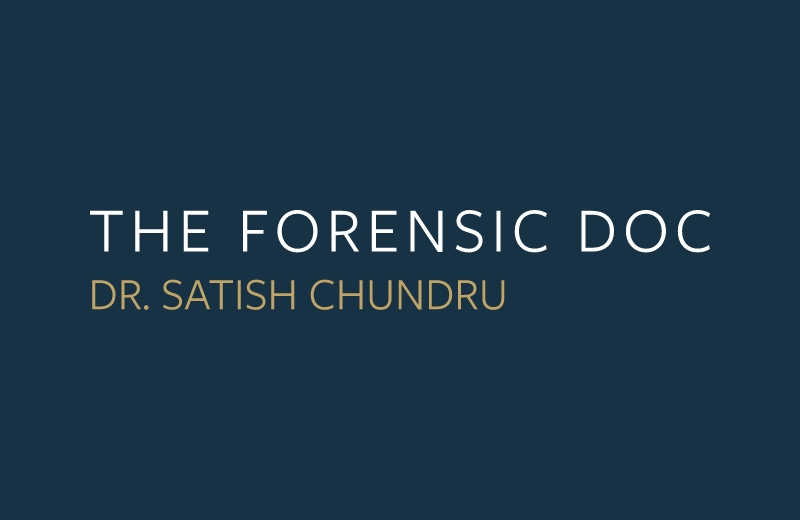 Dr. Chundru, one of only about 600 board-certified forensic pathologists in the United States, helps families, healthcare providers, healthcare facilities, and insurers by performing medical reviews every year. Dr. Chundru – as an unbiased, third-party – reviews the medical records, facility records, and communications between family members and a healthcare facility after a death. The answers he finds can provide closure to grieving families, relief to practitioners who suspect a family may be pursuing a medical malpractice lawsuit, or the first step for a family suing a physician or healthcare facility for malpractice.
Dr. Chundru, one of only about 600 board-certified forensic pathologists in the United States, helps families, healthcare providers, healthcare facilities, and insurers by performing medical reviews every year. Dr. Chundru – as an unbiased, third-party – reviews the medical records, facility records, and communications between family members and a healthcare facility after a death. The answers he finds can provide closure to grieving families, relief to practitioners who suspect a family may be pursuing a medical malpractice lawsuit, or the first step for a family suing a physician or healthcare facility for malpractice.
A lot of times when people think of medical malpractice, their minds instantly go to the overly-dramatized scenes they’ve seen in television and film medical shows. They might think of the surgeon who accidentally sutured up a patient while leaving a medical device inside his or her body. Or perhaps they envision an ER doctor unable to revive a patient who was rushed in by ambulance.
While all doctors know that medicine can get this dramatic, many times, it’s not. And sometimes, patients’ families want more answers about their loved one’s death after they were treated for illnesses, even common ones like pneumonia.
How a Medical Record Review Can Give Additional Answers Following a Death Related to an Illness
As a board-certified forensic pathologist with 20 years of experience, Dr. Chundru has completed more than his fair share of medical record reviews. And many of these reports have been for deceased patients who passed away after, or while receiving, medical care for an illness.
When Dr. Chundru investigates illness-related deaths, he may be able to undercover previously unnoticed details about the patient’s case that point to negligence and liability, including:
- Wrong Medications Given or Medications with Potential for Allergic Reactions Prescribed
Physicians have go-to medications for certain illnesses. If your loved one received an unusual medication given his or her diagnosed illness, it could be a sign that there was some negligence on the practitioner’s part.
Additionally, doctors are trained to know that if you have a known allergy to a certain medication, such as Penicillin, you shouldn’t receive medications related to that known allergy, such as Amoxicillin. Because healthcare facilities keep detailed records of what medications were taken and when Dr. Chundru can find these types of mistakes during a medical record review.
- Too Long of a Time Transpired Between Medication Doses
Healthcare facilities like hospitals are required to log when a medication dose was given. If you feel your loved one wasn’t receiving the around-the-clock medical care he or she needed, it’s possible that Dr. Chundru will find that the proper dosage of his or her required prescriptions wasn’t given at accurate times.
- Patient Not Screened for Known Illness Complications
Certain illnesses are known to have complications. Measles, for example, can cause Measles Encephalitis, which can be deadly. If your loved one was being treated for a disease with potentially fatal complications, but he or she wasn’t properly screened for them, Dr. Chundru may determine that medical negligence took place during his medical record review.
Contact Dr. Chundru for a Medical Record Review
Whether you’re a surviving family member looking for answers following your loved one’s illness-related death, or you were a part of the team caring for a patient who died and suspect that his or her family may be pursuing litigation, as a neutral third party, Dr. Chundru can help.
Contact him today to learn more about how he can help walk you through his review of the deceased’s medical records.







